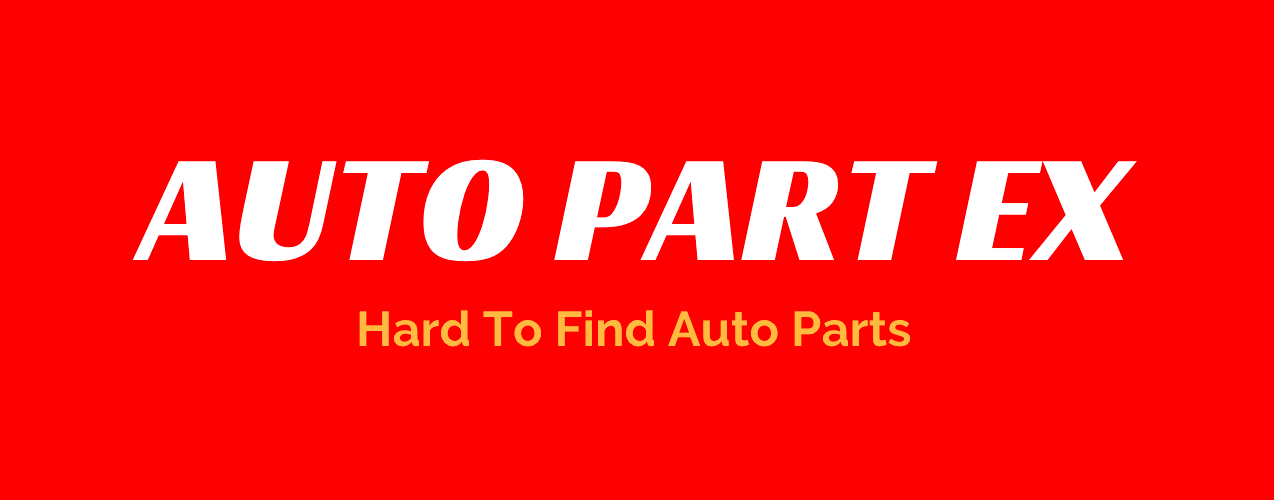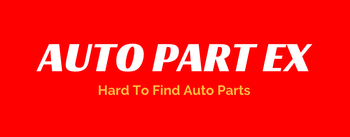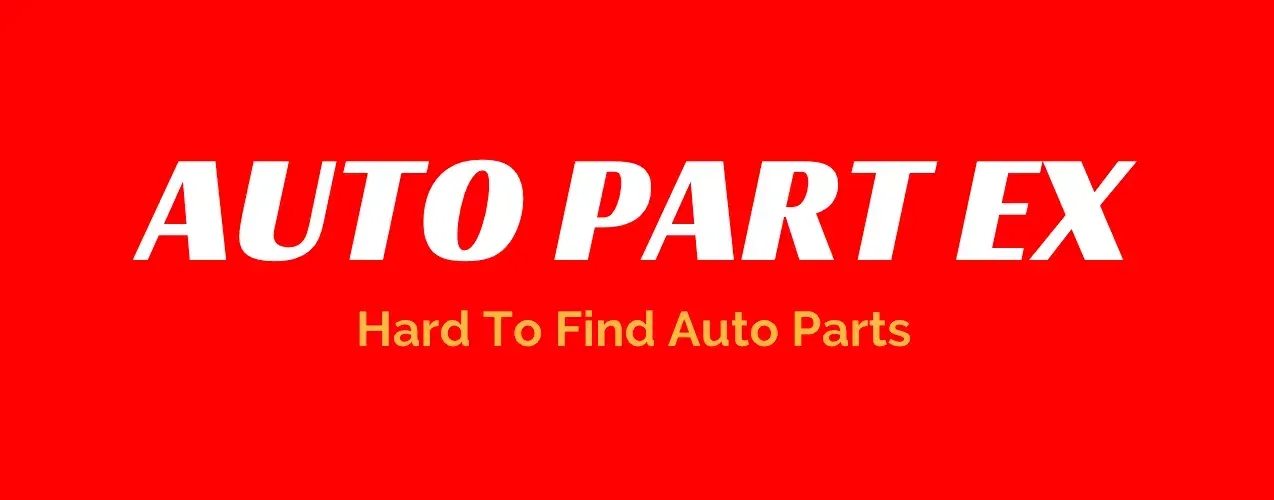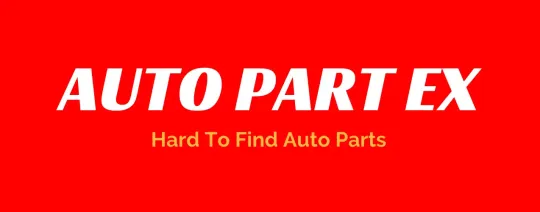Auto Parts
Can't find the auto parts you're looking for locally or online? AutoPartEx has you covered. We offer millions of affordable and hard-to-find auto parts from certified recyclers across North and South America. Our mission is to organize over 900 types of auto parts from a wide range of automobile manufacturers. With over 1,500 vehicle models to explore, we provide access to the parts you’d usually only find by searching through countless junkyards. Stop wasting time traveling to salvage yards only to come up empty-handed. Our web application simplifies your search, helping you find exactly what you need, hassle-free. And if you can't find the part you're looking for, our team of auto part specialists is available via web chat to assist you in locating the exact piece you need. Skip the middlemen, avoid annoying online auctions, and get the parts you need quickly and efficiently. With AutoPartEx, you’ll have your vehicle up and running in no time.
Discount Auto Parts
Learn More About OEM Auto Parts
OEM auto parts are crafted to match the exact specifications of your vehicle, ensuring a perfect fit and optimal performance. Whether you’re replacing a crucial engine component or a simple body part, OEM parts are built to maintain your vehicle’s integrity and safety. Unlike aftermarket parts, OEM components are tested rigorously to meet the manufacturer's standards, providing peace of mind that you’re not compromising on quality. This ensures:
- Perfect Fitment: No modifications are needed. The part fits as intended, reducing installation time and labor costs.
- Reliability and Longevity: OEM parts are tested to meet strict quality standards, providing peace of mind and lasting performance.
- Maintained Resale Value: Keeping your vehicle equipped with OEM parts can preserve its value, as it reflects proper maintenance and care.
Are You Compromising Your Vehicle's Safety and Performance Without Knowing It?
Many vehicle owners unknowingly put their safety and the reliability of their cars at risk by choosing non-OEM (Original Equipment Manufacturer) parts for repairs and replacements. While these aftermarket parts often come with a lower price tag, the hidden dangers associated with them can lead to significant safety hazards and unforeseen expenses down the road.
Firstly, safety concerns are paramount when it comes to non-OEM parts. These components may not meet the stringent quality and safety standards set by the original manufacturer. For instance, aftermarket brake pads might not provide the same stopping power as OEM pads. According to a study by the Federal Motor Carrier Safety Administration, substandard brake components can increase stopping distances, especially under heavy loads or adverse weather conditions. This not only endangers the driver but also other road users.
Secondly, fitment and compatibility issues are common with non-OEM parts. Since these parts are designed to fit a range of models rather than a specific vehicle, they often don't align perfectly. A misfitting component can cause additional strain on surrounding parts. For example, an ill-fitting aftermarket exhaust system might not seal correctly, leading to exhaust leaks that can introduce harmful fumes into the cabin and reduce engine efficiency.
Moreover, the materials used in aftermarket parts may be of inferior quality. OEM parts are manufactured with specific materials chosen for their durability and compatibility with your vehicle. Non-OEM manufacturers might opt for cheaper materials to cut costs. This can result in parts that wear out faster or fail prematurely. A common example is aftermarket rubber components, like bushings or hoses, which may degrade quicker due to lower-quality rubber compounds, leading to leaks or suspension issues.
Electrical components are another area where non-OEM parts can cause significant problems. Modern vehicles rely heavily on complex electronic systems. Aftermarket sensors or control modules might not communicate effectively with the vehicle's computer systems. An aftermarket mass airflow sensor that doesn't provide accurate readings can lead to poor fuel economy, reduced engine performance, or even engine stalling.
Additionally, using non-OEM parts can void your vehicle's warranty. Manufacturers stipulate that only OEM parts should be used during the warranty period to ensure that the vehicle operates as intended. Installing aftermarket parts can nullify these agreements, leaving you responsible for repair costs that would otherwise be covered.
There are also long-term financial implications to consider. While the initial purchase price of a non-OEM part might be lower, the lack of durability can lead to more frequent replacements. Over time, these costs can surpass what you would have spent on a single OEM part. Furthermore, the potential for non-OEM parts to cause damage to other components can result in expensive repairs. For example, a subpar oil filter might fail to protect the engine from contaminants, leading to accelerated engine wear or failure.
Insurance complications can arise as well. In the event of an accident, if it's found that a non-OEM part contributed to the severity of the damage or injury, insurance companies might refuse to cover the full cost of the claim. This is because non-OEM parts can alter the intended safety performance of the vehicle.
Finally, consider the impact on vehicle resale value. Savvy buyers and dealerships often look for vehicles that have been maintained with OEM parts, as this indicates proper care and adherence to manufacturer specifications. A vehicle equipped with aftermarket parts might fetch a lower price due to concerns over reliability and performance.
In summary, while non-OEM parts might offer short-term savings, they pose significant risks to your vehicle's safety, performance, and long-term costs. By choosing OEM parts, you ensure that your vehicle operates as the manufacturer intended, maintaining the highest standards of safety and reliability.
The Hidden Costs of Aftermarket Auto Parts
Aftermarket parts are often produced to fit a wide range of vehicle makes and models, which means they may not meet the specific requirements of your vehicle. This can result in poor fitment, reduced performance, and even damage to other components. Issues like premature wear and tear, reduced fuel efficiency, and unexpected breakdowns are common when using parts that aren't designed specifically for your vehicle.
While aftermarket parts might save you money upfront, the long-term costs can add up:
- Additional Labor Time: Mechanics may charge more for the extra time needed to make an ill-fitting part work, or they might refuse to install it altogether.
- Premature Failures: Aftermarket parts often don't undergo the same rigorous testing as OEM parts, leading to earlier failures and the need for replacements.
- Voided Warranties: Using aftermarket parts can sometimes void your vehicle's warranty, leaving you unprotected if major issues arise.
Real-World Benefits of Choosing OEM
Many customers who switched back to OEM parts after experiencing issues with aftermarket alternatives reported immediate improvements in vehicle performance and durability. One common story involves a driver who faced repeated engine overheating due to a poorly fitting aftermarket thermostat, only to find the issue resolved completely upon installing the correct OEM part. These cases underline the importance of sticking to original manufacturer parts.
Consider the case of John D., a car enthusiast who shared his experience on CarOwnersNetwork.com:
"I replaced my car's failing alternator with an aftermarket one to save some bucks. Not only did it not fit quite right, but it also died on me in six months. I ended up spending more to get an OEM alternator installed. Learned my lesson the hard way."
Similarly, a fleet manager on TruckersForum.net mentioned:
"After switching back to OEM filters, we've seen fewer engine issues and improved fuel efficiency across our fleet. The aftermarket filters just weren't cutting it.
Take Control of Your Vehicle's Health Today
Don't let inferior parts compromise your safety and your vehicle's performance. By choosing OEM auto parts, you're investing in quality, reliability, and peace of mind.
- Browse Our OEM Catalog: Find the exact parts designed for your vehicle's make and model.
- Expert Advice: Our team is here to help you select the right parts and answer any questions.
- Stay Informed: Subscribe to the AutoPartEx newsletter for expert tips, exclusive deals, and the latest industry news.
FAQs About OEM Auto Parts
What are OEM auto parts, and how do they differ from aftermarket parts?
OEM (Original Equipment Manufacturer) auto parts are components made by the same company that produced the original parts for your vehicle. These parts are designed to match the exact specifications of your car, ensuring optimal fit and performance. In contrast, aftermarket parts are produced by third-party manufacturers and may not adhere to the precise standards set by the original manufacturer. This can result in variations in quality, fitment, and longevity.
Why do mechanics often recommend OEM parts over aftermarket alternatives?
Mechanics frequently recommend OEM parts because they ensure a proper fit and reliable performance. On automotive forums like r/MechanicAdvice and Bob Is The Oil Guy, professionals share experiences where aftermarket parts led to installation difficulties and premature failures. OEM parts reduce the risk of compatibility issues and often come with a manufacturer’s warranty, providing peace of mind for both the mechanic and the vehicle owner.
Are aftermarket parts really that problematic?
While not all aftermarket parts are poor in quality, many mechanics and car owners report issues with them.
Common problems discussed on forums such as Honda-Tech and Toyota Nation include:
- Poor Fitment: Parts may not align correctly, leading to additional modifications.
- Inferior Materials: Use of cheaper materials can result in faster wear and tear.
- Lack of Reliability: Higher likelihood of part failure, which can cause damage to other components.
These issues can lead to increased labor costs and potential safety hazards.
Can using non-OEM parts void my vehicle's warranty?
Yes, using non-OEM parts can potentially void your vehicle's warranty. Manufacturers often specify that only OEM parts should be used for repairs during the warranty period.
According to discussions on Edmunds Forums, if an aftermarket part causes damage or doesn't perform correctly, the manufacturer may deny warranty coverage for related repairs.
Are OEM parts more expensive than aftermarket parts?
Initially, OEM parts can be more expensive than aftermarket options. However, as highlighted on Car Forums, the long-term costs may be lower due to the durability and reliability of OEM parts. Aftermarket parts might save money upfront but can lead to additional expenses from frequent replacements or repairs caused by part failures.
Do OEM parts offer better performance than aftermarket parts?
OEM parts are designed to provide the same performance as the original components installed in your vehicle. This consistency ensures that your car operates as intended. On the other hand, aftermarket parts may not meet these standards, potentially leading to reduced performance. Users on NASIOC (North American Subaru Impreza Owners Club) have reported issues like decreased fuel efficiency and engine responsiveness after installing certain aftermarket parts.
How do aftermarket parts affect vehicle safety?
Safety can be compromised when using aftermarket parts, especially for critical components like brakes and airbags.
Mechanics on iATN (International Automotive Technicians Network) have noted that some aftermarket brake pads do not provide the same stopping power or wear evenly compared to OEM pads. This can increase stopping distances and the risk of accidents.
What are common problems mechanics face when installing aftermarket parts?
Mechanics often encounter several challenges with aftermarket parts:
- Installation Difficulties: Parts may require adjustments or may not fit at all.
- Lack of Instructions: Inadequate or missing installation guides.
- Compatibility Issues: Electrical parts may not communicate properly with the vehicle's computer systems.
- Customer Dissatisfaction: Increased likelihood of returns due to part failures.
These issues are frequently discussed on forums like VWVortex and Mustang Forums.
Are there any acceptable aftermarket parts to use?
Some aftermarket parts from reputable manufacturers are acceptable and can even offer improved performance or customization. However, it's essential to research thoroughly and consult with a trusted mechanic. Communities on Club Lexus and MBWorld suggest that when considering aftermarket parts, one should:
Choose Established Brands: Opt for manufacturers with a proven track record.
Read Reviews: Look for feedback from other car owners who have used the parts.
Ensure Compatibility: Verify that the part is designed for your specific vehicle model.
How can I ensure I'm purchasing genuine OEM parts?
To purchase genuine OEM parts:
Buy from Authorized Dealers: Purchase parts directly from the vehicle manufacturer’s dealerships or certified online retailers.
Check Part Numbers: Use your vehicle's VIN to match part numbers accurately.
Be Wary of Counterfeits: Avoid deals that seem too good to be true, as counterfeit parts are common.
Consult Online Communities: Seek advice from forums like Toyota Nation or Honda-Tech for recommended sources.
Unseen Pitfalls of Using Aftermarket Auto Parts
Could Your Vehicle's Performance Be Suffering Due to Ill-Fitting Parts?
Many car owners unknowingly jeopardize their vehicle's reliability by opting for aftermarket parts that seem cost-effective but come with hidden drawbacks. What you might not realize is that these parts often don't fit correctly, leading to installation headaches and long-term issues that could have been avoided.
Mechanics Sound the Alarm on Aftermarket Parts
Professional mechanics frequently encounter problems with aftermarket parts not fitting properly. According to discussions on automotive forums like Mechanic's Hub and AutoServiceProfessional.com, technicians report that aftermarket components often require modifications to install. For example:
- Brake Pads and Rotors: Mechanics have found that aftermarket brake components sometimes don't match the exact dimensions of the OEM parts, leading to uneven wear and compromised braking performance.
- Suspension Components: Aftermarket struts and shocks may not align perfectly with the mounting points, causing installation delays and potential safety hazards.
- Electrical Sensors: Non-OEM sensors like oxygen sensors or mass airflow sensors can send incorrect readings to the vehicle's computer, resulting in poor engine performance and fuel efficiency.
As one seasoned mechanic from the Automotive Technician's Forum stated, "I've had vehicles come back with issues because the aftermarket part failed prematurely or didn't perform as expected. It's frustrating for both me and the customer."
Your Next Steps to Vehicle Reliability and Safety
Don’t take chances with your vehicle’s performance and safety. Explore our extensive catalog of OEM auto parts, tailored to your specific make and model. For more insights, tips, and exclusive offers, subscribe to the AutoPartEx newsletter and stay informed about the best practices for maintaining your vehicle.




